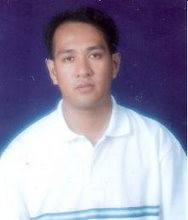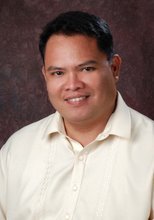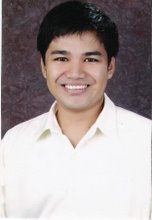by: R. Q. Inocencio
There is this obvious, undeniable difficulty in the attempt to form an objective historical judgment generally because of some hindrances like authority, tradition, mystification and dogmatism. Having been a student of the social science discipline, we were thought to observe an impartial outlook in judging the intricate and composite interrelationship of the life stories of our nation. Graham Clark exhorted that one’s vision of historical events is stimulated and even shaped by one’s personal experience of the time. I am of honest belief that the idea of this leading British prehistorian came after reasoned comprehension of all factors that will make the study of history based on laid objective. This historical judgment is generated by the manner in which one judge the continuity, discontinuity, change and duration of the historical facts in certain events. Therefore, writing a self-conscious historical conception is just a modernist project of phenomenology and objectivity is sometime lost or put into box.
The re-examination of accepted history, with an eye towards updating it with newly discovered, more accurate and/or less biased information is really a challenge and an issue among contemporary historians. I stand foursquare that there is a need to employ historical revisionism. Dispelling historical fallacies must be done regardless of historical timeline but importantly within time-bound- that is now! Let me anchor my opinion to a fact that, most recently surfaced historical facts came about with the aid of technology. George Santayana, a 19th century philosopher has something to say about historical development. According to him “Those who do not learn from the history of the past are destined to repeat it”. This admonition serves to remind us that if we fail to learn from the lesson of the past, we will make no progress at all. That is without keen understanding of present developments we will continually find ourselves re-inventing what was already invented and likewise discovering what was previously discovered by persons whom we followed. That is one reason why modern historians are now keeping up with the fast paced discipline thus become technologically oriented individuals. To mention, during the Paleolithic Age or old-stone age up to Neolithic Epoch or new-stone age even rarely at present, historians, archaeologists, paleontologists, anthropologists and other professionals of the same discipline, devise carbon 14 or potassium 40 dating as a means of tracing back the age or more or less the physical structure of a primitive person. But that was before, today with the advent of technology, historians now are using computer imaging to address historical problem with humble precision. Take for example, in intermediate up to secondary, students learned that the first man or the earliest man who live in the Philippines was the Dawn Man. This is according to what was postulated by Dr. Otley Beyer, a renowned American anthropologist who founded the same branch of knowledge at UP, the first of its kind in our country before. But latest discoveries proved that the theory made by Dr. Beyer was just a hoax! For new findings shows that it was not the Dawn Man rather the Tabon Man which can be found in one of the caves in the southernmost part of Palawan. This was made possible after the steadfast work done by Dr. Robert Fox. This historical breakthrough was shown in one of the episodes of National Geographic. There the remains of this primitive man was entered in a machine which transmogrify as a big oven and right there and then with the aid of computer it appeared on the screen of the device all the facts and figures, which led to better understanding of our ancestry. This is just one way of showing how computer can serve as a potent tool in removing cobwebs in historical works. So the darkness of the past, the uncertainties of the future became a reality at present.
Other dismaying historical misrepresentations include: the Magellan’s date of arrival, Maragtas undecoded, Sri Vijaya and Madjapahit controversial empires, Suzanne Jacoby and Suzanne Thill Tales, Luna-Hidalgo Bogus medal claims, Magdalo-Magdiwang in the case of the Oakwood mutineers and even the historically correct celebration of Christmas: December 25 or April 17? Moreover, questions like did Bonifacio’s strong fanatical admiration to Rizal led to latter’s early death? And similarly did Aguinaldo plot the death of Andres Bonifacio and Antonio Luna? Even the now placid life of Rizal was stormed with many trivial questions like did he really retracted to Catholicism? Is he the biological father of Adolf Hitler? Is he really an American-made hero? Is he a brawler, womanizer, gambler and a beer drinker? Why he did not wear a Barong Tagalog? (questions which were given answers by my former students mostly in chicharon way) And many more which all warrant an in-depth probe and careful explanation.
In the context of Philippine history alone, Dr. Sonia Zaide discussed that there were several ways to explain why most historians ended writing inventive stories and fabulous tales, to wit:
1. The iconoclastic policy of the Spanish colonizers which destroyed many of the relics in ancient Philippine society.
2. Ancient Filipinos preferred oral or verbal history
3. Poverty and lack of cultural enlightenment
4. Wars, fires and other calamities
5. Finally, sources are sometimes too regionalist and in western perspectives and there is a great distortion in interpretation because of many languages or dialects. Moreover, the author’s personal biases.
To bridge the gap and to antidote the problems, an intensive program of awareness should be done in order to shed light on how historical objectivity can become beneficial to the placid living of teachers in history. To discriminate historical facts to fiction, May I humbly share the following suggestions:
1. Zealous students in history must not only think of their own time and interest but rather beyond his own interest and cause of his own age.
2. The teachers must teach the subject as a science and not as a branch of literature only. The science of sound interpretation or Hermeneutics must be observed at all cost. Furthermore, philosophical approach such as epistemological documentation and meta-narration of an event must never be overlooked.
3. The teachers must teach the subject using the “spirit of detachment approach”- understanding rather than judging the event. Personal bitterness and/or antagonism must not interfere or influence into his discussion.
4. Underscore the pragmatic use of voluminous raw data in micro-history i.e. local history making it an empirical grounding of a truly dynamic, representative and blunder-free history both in national and local perspective.
For my Parthian shot, let us all be reminded that at the bottom of this is the fact that everybody safeguards his own historical judgment against others, however this does not come as absolute, just and an elixir to all qualms for a historical objectivity…



No comments:
Post a Comment